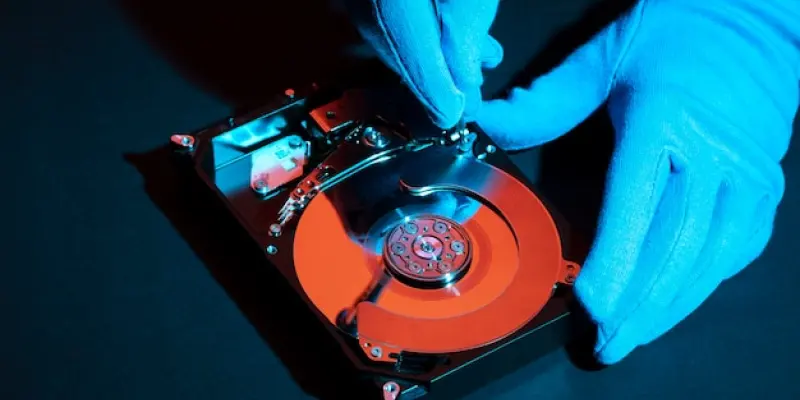In recent years, the proliferation of scams involving Seagate hard drives has left consumers increasingly wary, as clever fraudsters deploy sophisticated methods to pass off used drives as new, deceiving even the most cautious buyers. This enduring issue underscores the importance of consumer vigilance and the continued need to adapt detection methods, as fraudsters continually refine their tactics, rendering older detection methods obsolete.
The Resilience of Fraudsters and Evolving Tactics
Fraudsters have shown remarkable resilience, constantly updating their methods to stay ahead of detection measures, making it ever more challenging for consumers to discern between legitimate and tampered products. Initially, these scams revolved around Seagate hard drives repurposed from Chia cryptocurrency mining operations, with drives sold by reputable retailers unaware of the actual condition. These used drives were tampered with to manipulate SMART (Self-Monitoring, Analysis, and Reporting Technology) data, creating a facade of a new drive. However, as consumers and experts began understanding these scams, fraudsters responded by evolving their tactics further.
A significant development in these scams involves the manipulation of Field Accessible Reliability Metrics (FARM). These metrics play a crucial role, allowing users to assess the health and reliability of a hard drive. By tampering with both SMART and FARM values, fraudsters can make a heavily used drive appear unused, thereby tricking unsuspecting consumers into believing they are purchasing brand-new hardware. Despite earlier exposures of these fraudulent activities, the persistence of scammers has made it evident that new methods are continually being developed, challenging traditional verification practices and compelling consumers to remain vigilant.
The Role of FARM and SMART Metrics
The role of FARM and SMART metrics in determining the health and reliability of hard drives has become increasingly complex as scammers continue to find ways to manipulate these values. Traditionally, these metrics provided a reliable way to assess a drive’s usage and overall condition, helping consumers identify potential issues before committing to a purchase. However, with advancements in tampering techniques, the integrity of these metrics has been severely undermined, necessitating alternative verification methods to ensure drive authenticity.
Recent trends indicate that hardware-based methods, such as comparing SMART and FARM values, once considered reliable, are no longer sufficient to guarantee a drive’s newness. Consumers must now turn to other indicators to safeguard their purchases. Checking production dates and warranty information has become crucial, as these can provide more definitive proof of a drive’s authenticity. Experts advise that a production date within six months of purchase and matching warranty periods in relation to the manufacture date are strong indicators of a legitimate product. Additionally, missing or tampered stickers on the drive can be a red flag, suggesting possible fraudulent activity.
Practical Advice for Consumers
In recent years, there’s been a noticeable increase in scams involving Seagate hard drives. Crafty swindlers have developed advanced techniques to sell used drives as new, tricking even the most attentive consumers. This persistent problem highlights the critical need for consumers to stay alert and continuously update their methods of detection. As these fraudsters keep finding new ways to deceive, older detection techniques become less effective.
Thus, it is essential for consumers to remain vigilant and informed about the latest scams and methods to protect themselves from falling victim to these increasingly sophisticated deceptions. Businesses and individuals alike should be proactive in verifying the authenticity of products before purchasing, and it’s wise to source these items from reputable sellers known for their integrity. Further, being aware of common signs of fraud can help prevent future financial losses and frustration. As deceptive tactics evolve, our approach to identifying them must also advance to ensure that we stay one step ahead of the fraudsters.

